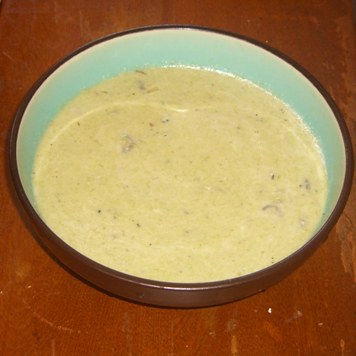
AYURVEDIC FOODS
Table of ContentsHow Does This Ayurvedic Food Improve Wellness?
CLINICAL AYURVEDIC REVIEW
Buying & Preparation
Be daring in your selection of asparagus. Green is where it begins, but you can also find white and purple varieties. Abundant green asparagus are rich in a variety of minerals and vitamins, namely potassium, calcium, vitamin C, vitamin B, folic acid, beta carotene. Equally nutrient rich purple varieties tend to be thicker and less stringy. When cooked they offer a slightly sweeter flavor with a hint of nuttiness.
Appearing alien or albino, stark white asparagus have actually never seen the sun! These plants are covered with soil and kept from receiving sunlight. Therefore they lack chlorophyll and never turn green. They have somewhat less nutritional value than green and purple varieties because they are lacking phytonutrients called anthocynanins. Asparagus tips rot may rot before the rest of the staulk. Always guage freshness of asparagus by looking at the tip first. Check for sliminess or bad smell. Note: Wild asparagus grows in North America. For those of you extra interested in asparagus, see the book "Stalking the Wild Asparagus." The base of the asapargus is stringy and fibrous. Break off these woody tips with your hand. The asparagus will naturally break at the point where it's edible. Cooking AsparagusI love asparagus when it's crunchy on the outside, soft on the inside. I usually broil them with olive oil, salt, pepper, and thyme or rosemary. Other options grilling, sauteing, steaming, and frying. They are also lovely in soups! Fast & EasyAsparagus is an excellent treat for those on the go, since it is so easy and cooks quickly. "As quick as cooking asparagus," is an ancient Roman saying for something that can be done quickly. Take advantage of the ease of asparagus to ensure your body gets all the vegetables it needs each day.
Learn about the health benefits of asparagus for FREEYou'll receive free access to our entire website including healthy recipes, nutritional diet plans, medicinal uses of ingredients, & ayurvedic health tips. Sign in once and you can use our website indefinitely..browse recipesIs Asparagus Good for My Ayurvedic Diet?Find out by taking this free, easy quiz. You'll learn your body type, and whether 'Asparagus' is a good fit. Complete the basic quiz in 1 minute, or go deeper with additional quizzes at your own leisure to learn more about your body.AYURVEDA'S GUIDE TO VITALITY & WHOLESOME NOURISHMENTYour Ayurvedic diet is tailored to your individual body and your specific imbalances. With an Ayurvedic diet you feel joy and satisfaction because what you are eating truly nourishes and balances you. Disease results from diets and lifestyles that are incompatible with your nature. By eating a personalized diet matched to your body, you experience optimal health. See How it Works.SERVING SIZE: 1/2 c SPECIES: Asparagus officinalis FAMILY:
Asparagaceae EAT IN: Metabolic Nature of Asparagus
Foods with a Similar Nature to AsparagusBarley Barley has these Actions in CommonDemulcent, Satisfies-stomach, Diuretic, Appetite-suppressant, Internal-detoxicantStinging Nettles Stinging Nettles has these Actions in CommonInternal-detoxicant, Appetite-suppressant, Satisfies-stomach, Diuretic, Urinary-tonicAvocado Avocado has these Actions in CommonRefreshes-skin, Demulcent, Satisfies-stomach, DiureticAlfalfa Sprouts Alfalfa Sprouts has these Actions in CommonInternal-detoxicant, Appetite-suppressant, Urinary-tonic, DiureticChickweed Chickweed has these Actions in CommonDemulcent, Diuretic, Appetite-suppressant, Internal-detoxicantPopped Amaranth Popped Amaranth has these Actions in CommonDemulcent, Diuretic, Appetite-suppressant, Satisfies-stomachAmaranth Amaranth has these Actions in CommonDiuretic, Appetite-suppressant, Satisfies-stomach, DemulcentAloe Vera Juice / Gel Aloe Vera Juice / Gel has these Actions in CommonRefreshes-skin, Demulcent, Internal-detoxicant, Appetite-suppressantSorghum Flour Sorghum Flour has these Actions in CommonDiuretic, Hypotensive, Demulcent, Satisfies-stomachCinnamon Cinnamon has these Actions in CommonDiuretic, Hypotensive, Demulcent, Internal-detoxicantHerb Supplements with a Similar Nature to AsparagusPunarnavadi Guggulu Tablets Punarnavadi Guggulu Tablets has these Actions in CommonHypotensive, Internal-detoxicant, Urinary-tonic, Demulcent, DiureticCornsilk Cornsilk has these Actions in CommonInternal-detoxicant, Urinary-tonic, Demulcent, Diuretic, HypotensiveGokshura Gokshura has these Actions in CommonDemulcent, Diuretic, Hypotensive, Internal-detoxicant, Urinary-tonicHorsetail Horsetail has these Actions in CommonInternal-detoxicant, Urinary-tonic, Demulcent, DiureticVidari Vidari has these Actions in CommonDemulcent, Diuretic, Hypotensive, Urinary-tonicPunarnava Punarnava has these Actions in CommonUrinary-tonic, Diuretic, Hypotensive, Internal-detoxicantAsparagus root Asparagus root has these Actions in CommonDemulcent, Diuretic, Internal-detoxicantCleavers Cleavers has these Actions in CommonDemulcent, Diuretic, Internal-detoxicantPartridge Berry Partridge Berry has these Actions in CommonDemulcent, Diuretic, Urinary-tonicAnantamul Anantamul has these Actions in CommonInternal-detoxicant, Urinary-tonic, DiureticChandraprabha Vati Chandraprabha Vati has these Actions in CommonDiuretic, Internal-detoxicant, Urinary-tonic
Joyful Belly is a recognized school of biocharacteristics medicine. TRADITIONALLY INDICATED FOR THESE SYMPTOMSAsparagus may be beneficial for these symptoms. The suitability of any food for a condition is highly dependent on the individual. Please see your doctor before using this food to treat a medical condition.View Other Ingredients for SummerAsparagus is recommended for Summer. Check out these other Summer foods here.HOW DOES EATING AYURVEDICALLY MAKE YOU FEEL?Eating Ayurvedically makes you feel nourished and energized. Food digests with ease when right for your body type (dosha). Healthy digestion is seen as the cornerstone of well-being in Ayurveda. Healthy digestion generally prevents illness. If you do get sick, a strong digestive fire reduces the severity of illness and increases your resilience. It also improves your mood. Once you begin eating Ayurvedically, you will feel refreshed, vital and strong.Clinical Tools & Resources
About the Author John Immel, the founder of Joyful Belly, teaches people how to have a healthy diet and lifestyle with Ayurveda biocharacteristics. His approach to Ayurveda is clinical, yet exudes an ease which many find enjoyable and insightful. John also directs Joyful Belly's School of Ayurveda, offering professional clinical training in Ayurveda for over 15 years.John's interest in Ayurveda and specialization in digestive tract pathology was inspired by a complex digestive disorder acquired from years of international travel, as well as public service work in South Asia. John's commitment to the detailed study of digestive disorders reflects his zeal to get down to the roots of the problem. His hope and belief in the capacity of each & every client to improve their quality of life is nothing short of a personal passion. John's creativity in the kitchen and delight in cooking for others comes from his family oriented upbringing. In addition to his certification in Ayurveda, John holds a bachelor's degree in mathematics from Harvard University. John enjoys sharing Ayurveda within the context of his Catholic roots, and finds Ayurveda gives him an opportunity to participate in the healing mission of the Church. Jesus expressed God's love by feeding and healing the sick. That kindness is the fundamental ministry of Ayurveda as well. Outside of work, John enjoys spending time with his wife and 7 kids, and pursuing his love of theology, philosophy, and language. Comments & Impressions of 'Asparagus'Do you like 'asparagus'? Why or why not? What makes it unique? Is there something else you'd like to know about 'asparagus'?     (5.00 out of 5 stars) 1 rating, 484 likes (5.00 out of 5 stars) 1 rating, 484 likes     Sign in to review this food Sign in to review this food
I have a question regarding "FODMAPS" (Fermentable Oligo-Di-Monosaccharides and Polyols), since asparagus is supposed to be included in this list: Are vatas the most prone to having issues with these food substances? Thanks!
It's aggravating to Vata because it's a diuretic and Vata already tends toward dryness.
|

Join Joyful Belly.
Want our top Ayurvedic recipes and health tips?Subscribe to our free newsletter!



 On MeWe
On MeWe On Pinterest
On Pinterest On Facebook
On Facebook On Twitter
On Twitter On WhatsApp
On WhatsApp On Email
On Email CREATE A RECIPE WITH IT
CREATE A RECIPE WITH IT COMPARE IT
COMPARE IT








